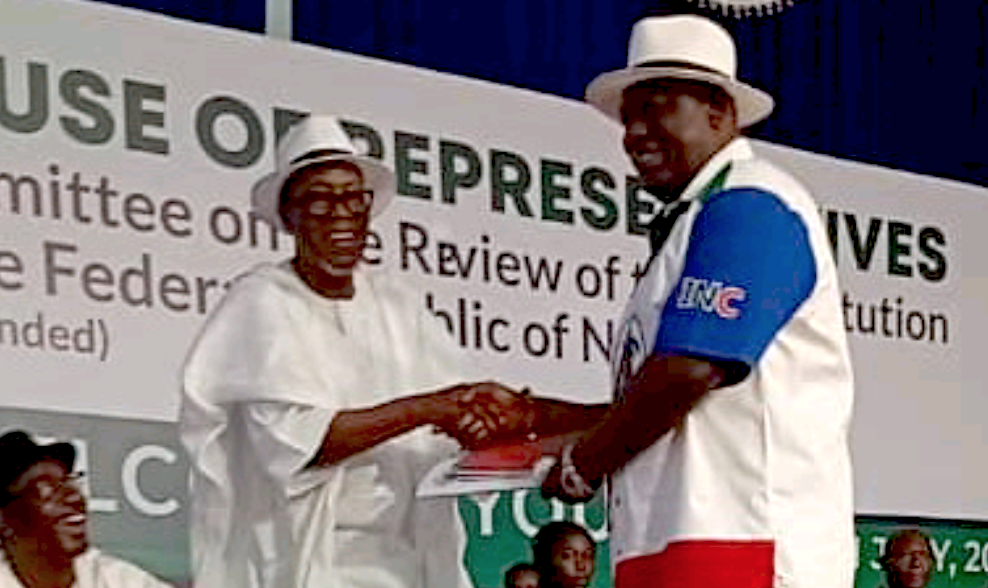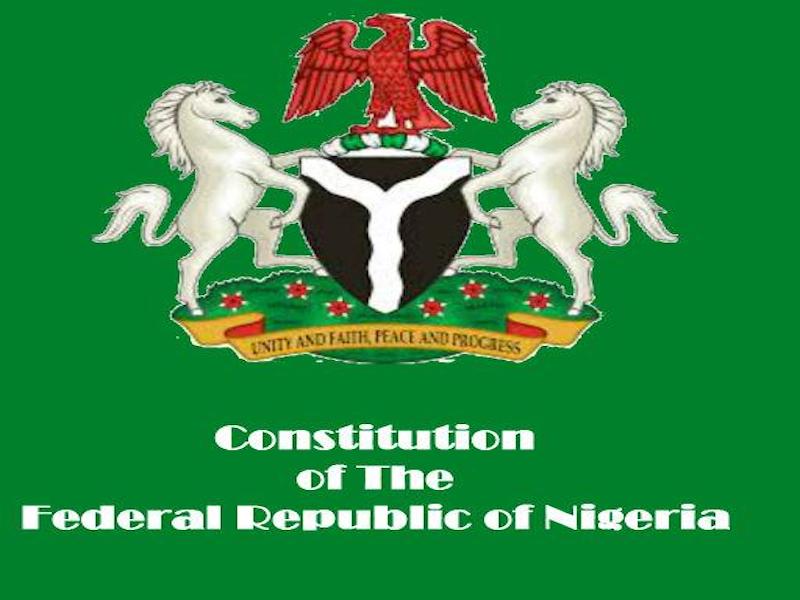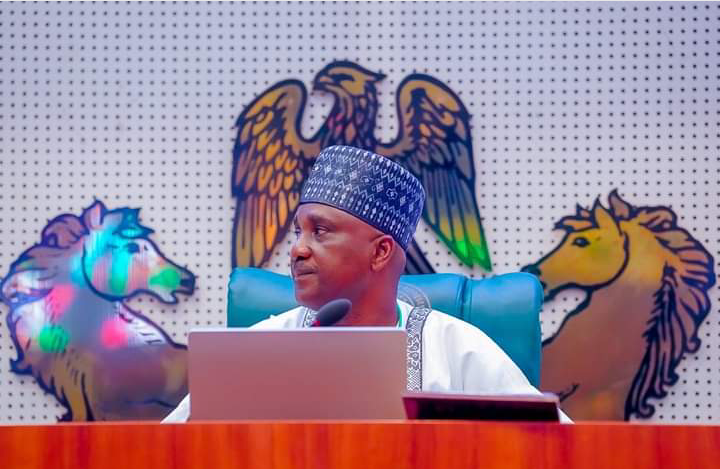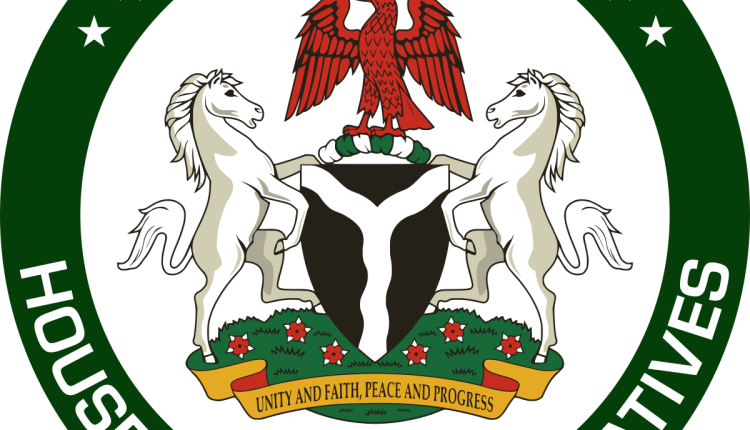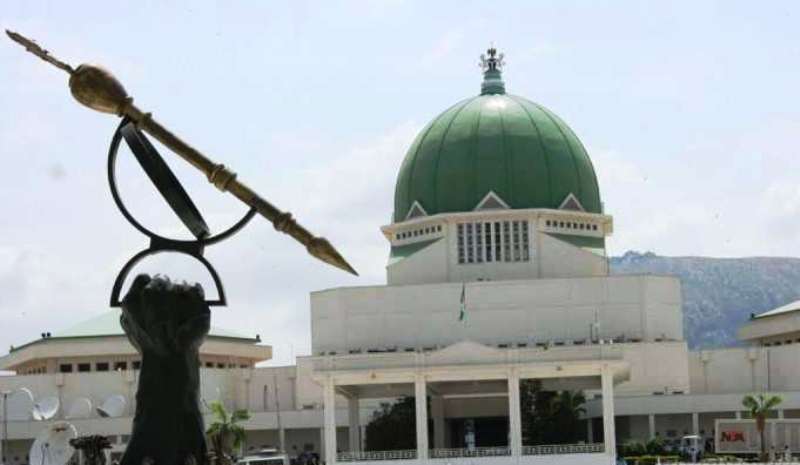Agitators seeking the creation of Amana and Savannah States in Adamawa and Borno on Saturday stormed Maiduguri to push for their demand at the Public hearing on Constitutional Amendment by the House of Representatives.
The public hearing which was organised by the House Committee on Constitutional Amendment had attracted people from various constituencies in Adamawa, Borno and Yobe.
The event which was chaired by Representative Isa Ali, on behalf of the North-east Centre B, comprising Adamawa, Borno and Yobe was supported by traditional rulers from the region, who also unanimously called for the inclusion of traditional rulers’ role in the constitution alongside the provision for allocation of resources to their offices.
Alhaji Sali Bello, the Dan Amar Mubi, who led agitators demanding for the creation of Amana State from Adamawa, urged the House Committee on Constitutional Amendment to look into the marginalised communities with a view to rectify the unjust treatment against them.
He also expressed concern on how they were being treated unjustly after voting to join Nigeria during the Plebiscite of the 11th of February 1961, despite being promised that their area will remain autonomous with Mubi as capital.
“What wrong have we done to Nigeria? Why have we been treated so unjustly? Why must we go through such rituals of demanding for the fulfilment of a solemn promise made to us,” Bello asked?
He recalled how both the governments of the Republics Nigeria and that of Cameroons had assured them then that their areas will continue to enjoy their autonomy whichever country they vote to join and that their capitals of Mubi for the North and Buea for the South will continue to enjoy such status as capitals of autonomous entities.
Bello said that the Republic of Cameroun had fulfilled its promise by creating two regions out of the former Trusteeship territory, while the Republic of Nigeria failed to comply with its promise.
Similarly, Dr Usman Balama, member of the House of Reps., representing Hawul/Askira-Uba Federal Constituency of Borno, said that the creation of Savannah State out of the present Borno was paramount in view of the current population and number of local government areas in Borno.
“If you look at all the states in the North-east, Borno has the largest population; and it has 27 LGAs, which is the highest in the zone.
“We want to ensure effective utilisation of resources in this country; and when we talk of that, the smaller the size of the component, the easier and more effective the management of the resources it has
“So, for the people of Borno State, the creation of Savannah State is a win-win situation, because once Southern Borno has Savannah, Borno itself will have a population it can easily manage in terms of development, resource utilisation and even in terms of security,” the federal parliamentarian argued further.
“I want to say today to all lovers of democracy and to all citizens of Borno State that the agitation and yearning for the creation of Savannah State is a clarion call for all to support, whether you are from Northern, Central or Southern Borno.
“Because this is a constitution review, we must align with the yearnings and aspirations of our people, which is the creation of Savannah State,” ” Balama told newsmen on the sidelines.
Declaring the hearing open, Gov. Babagana Zulum urge the resilient people of Adamawa, Borno, Yobe and all other Nigerians to seize the opportunity to express their voices, experiences and aspirations.
“In the same vain, I would also like to call on traditional rulers, religious leaders, women and youth groups, professional bodies, Civil Society Organisations and other stakeholders to make meaningful contributions that will enrich the outcome of this process.
“As leaders, we are duty bound to ensure that this constitution review process produces a more just, equitable and united Nigeria, a Nigeria that works for all, regardless of region, tribe, religion or background.
“Therefore, we must ensure that any constitutional amendment should take into account the peculiar experiences and aspirations of our people,” Zulum, who was represented by his Deputy, Dr Usman Kadafur said.
State Creation: Agitators of Amana state urge Nigeria to redeem 64 years promise
Communities in Adamawa and Borno states agitating for the creation of Amana state, have urged the Federal Government to fulfill its 64 years promise of a state to the people of former Northern Cameroon who chose to be Nigerians in 1961.
The communities hitherto known as Trust Territories of the Northern Cameroon, chose to be part of Nigeria in a plebiscite organised by the United Nations on Feb. 11, 1961.
However their counterpart in Southern Cameroon who are part of the plebiscite chose to remain in Cameroon.
Speaking at the public hearing organised by the House of Representatives in Maiduguri on Saturday, the Director General and Leader of the Amana State Movement, Alhaji Sali Bello, said they were promised a state status by Nigeria during the plebiscite.
Sali said their counterparts who chose Cameroon are now having two of the 10 regions in Cameroon, while the promise to give them a state in Nigeria with Mubi as capital is yet to be fulfilled.
“There are 36 states in Nigeria today with 36 state Capitals. Our land is not one of them and the city Mubi is not a State Capital as promised. We are just an unfulfilled promise. That is all.
“In Contrast, our brothers in the Southern part of the Trust territory of Cameroons who voted to join the Republic of Cameroon had their promises fulfilled beyond the earlier pledge made.
“Today there are 10 Regions in Cameroon Republic. The people of Southern Cameroons have two Regions – the South West with Buea as Capital and North West with Bamenda as Capital.
“Out of 10, they have 2. Out of 36, we have zero. Haba! This is gross injustice. What wrong did we do to be so treated,” Sali lamented.
He recalled how the late Saudauna of Sokoto, Sir Ahmadu Bello led t
he Nigeria campaign to woo them into Nigeria promising them a lot of goodies.
“Late Sir Ahmadu Bello, Sardauna of Sokoto told us that we will continue to enjoy autonomy under the Nigerian State.
“He went further to say your Capital City of Mubi will Continue to enjoy the same status with Kano, Katsina, Ilorin, and all other provincial Capitals such as Maiduguri, Bauchi and several others across the Country.
“We were very happy. Little did we know that these will end up being unfulfilled promises. But we never gave up on our agitations for Nigeria to redeem their promises to our people.”
Sali appealed for the creation of the proposed Amana state, adding that they have fulfilled all requirements outlined in the guidelines for the creation of the state.
“We appeal to the Honourable House of Representatives to consider and recommend the Creation of Amana State with the Capital in Mubi.
“This will not only redeem the promise made by past leaders but tow the path of honour.
“Please Consider your titles of Honourables and restore Honour to our people and erase this grave injustice by creating a State out of the ‘Trust Territory’ of Northern Cameroons to be based on Trust or ‘Amana’, Sali pleaded.

